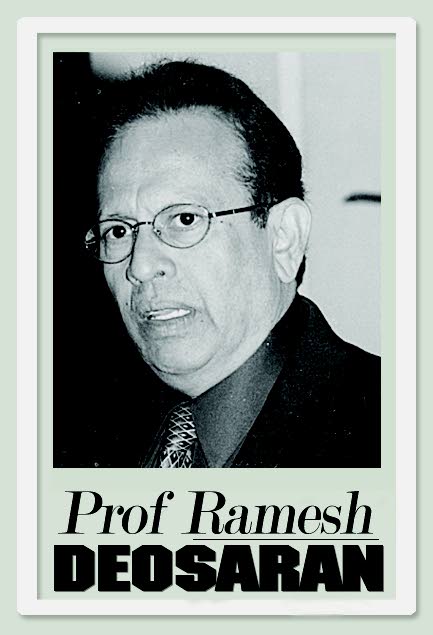Gary in hardest job

Hard. Among its meanings are “severe, difficult to understand, explain or accomplish, difficult to bear.” After many years of observation, research, conferences, etc, I think being commissioner of police in a democracy is the hardest job, especially in this lawless, disorderly multi-ethnic country. Last year, Prime Minister Dr Keith Rowley confessed that being prime minister is the hardest of all. With the pressures around him, he may be right. But you see, a PM has a lot of space to manoeuvre, speak, defend, and resources to do so. He (or she) can be shielded by passing on mistakes to ministers or other authorities.
A new commissioner like Gary Griffith faces very hard, hellish challenges given the manner of appointment, pressure for accountability to several authorities (eg PSC, National Security Council, National Security Minister, JSC) daily pressures from a vigilant media and anxious public, limited resources, troubling internal issues, then facing the moving targets of crime and held back by a burdened judiciary and under-staffed DPP office.
Last May, in my third address to the Association of Caribbean Commissioners of Police (ACCP) 33rd annual conference, Montego Bay, Jamaica, I risked arguing that the CoP job is hardest. Naturally, the applause was quite loud. (The address focused on two other issues – dilemmas of police oversight and integrating police-citizen relations) I said: “With brutal frankness, I declare that one of the most difficult jobs, if not the most difficult job in the democratic Caribbean is that of commissioner of police who daily faces continuous three-pronged pressures from the public, politicians and criminals, and all this with an insecure tenure of office.” (I pointed out the number of Caribbean states which had at that time acting commissioners.)
No doubt, new Commissioner Gary Griffith has an uphill battle, “difficult to accomplish and bear” and often caught in a dilemma in dealing with the public. Last week I was quite puzzled by an editorial (Guardian, November 26) headlined, No time for mas, Commissioner.
The editorial questioned the readiness and manner in which Mr Griffith responded to everything that came his way in “midnight-robber-styled language, tone and demeanour.” No specific example was given. The editorial’s request for elegance and restraint is appreciated but I was puzzled for two reasons: (1) Mr Griffith’s language style, even demeanour, is nothing new. That is how he was – always a “colourful figure” when challenged. And the Police Service Commission and Parliament appointed him as commissioner, an appointment with, surprisingly, substantial public support such that if there were an election for CoP, he would have won handsomely.
(2) The editorial’s comparison of Mr Griffith with the “midnight robber” is unfortunately over-stretched, especially with the word “robber.” More than this, the language and style for which he is criticised were all responses to reporter’s continuous questions, and headlined quite colourfully, sometimes sensationally. That, you may say, is the newspaper’s beneficial style.
So what could well happen is that Mr Griffith may now provide style and language so dull or circumscribed that headline writers and media market may experience a rundown. Of course, it is up to Mr Griffith to reconsider what some publicly dislike. At the same time, he does have his supporters and, apparently less so, critical non-supporters. In this context, quite a few may disagree with me. It seems then governance of the Police Service and the role of the CoP are in a state of tension-driven evolution.
In my address to Caribbean Commissioners of Police, I said: “While in a democracy, some measure of civilian control over the police and military is essential, a commissioner must feel secure and independent enough to do what is right, to conduct investigations from top to bottom without fear or favour, and servant only to the law. At the same time, such powers require commissioners to have visible integrity and a keen sense of fairness.”
I added: “The irony of Caribbean democracy is that while the population elects politicians who promise to be trustworthy, honest and fair, the population in turn instinctively supports ‘independent’ but ineffective institutions out of fear and mistrust of these same politicians.” The duty of the CoP is to protect both the population and their institutions – a very hard job that requires encouragement.

Comments
"Gary in hardest job"